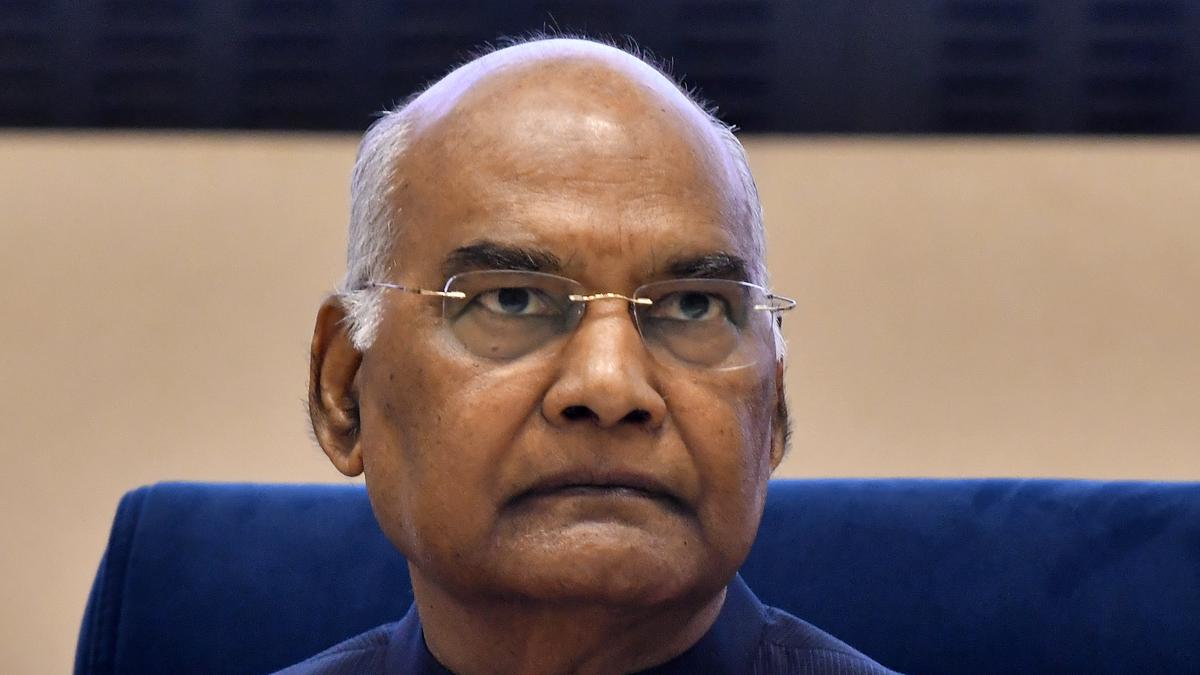NEW DELHI, Mar 8: The high-level committee led by former president Ram Nath Kovind is in the process of submitting its report to the Government on ‘One Nation, One Election’, sources said on March 8.
Besides suggesting a procedure to synchronise the terms of State Assemblies to ensure that all polls are held together from 2029 onwards, the Committee is also likely to push for a common electoral roll for elections to Lok Sabha, Assemblies and local bodies, including municipalities and panchayats.
Set up in September 2023, the panel headed by former president Kovind is mandated to examine and make recommendations at the earliest on the issue of holding elections simultaneously.
Sources said that Article 83 (on the duration of the Houses of Parliament), Article 85 (on the dissolution of Lok Sabha by the President), Article 172 (on the duration of the State legislatures), Article 174 (on the dissolution of State legislatures), and Article 356 (relating to the imposition of President’s Rule in States) would need to be amended to hold synchronised elections. The provisions of the Representation of the People Act would need to be amended.
While the Election Commission is mandated to hold Presidential, vice-presidential, Lok Sabha, Rajya Sabha and State legislature polls, respective State Election Commissions hold local body polls.
Parties such as the BJP have told the Kovind panel that the local body elections should be held by State election commissions but in sync with Lok Sabha and assembly polls.
The Election Commission has said it would require an estimated ₹10,000 crore every 15 years to procure new Electronic Voting Machines (EVMs) if polls are held simultaneously. In a communication sent to the Government last year, the Commission noted that the shelf life of EVMs was 15 years and one set of machines could be used to conduct three cycles of elections in their life span if polls were held together.
Separately, the Law Commission is also on the verge of finalising its report on simultaneous polls and it may suggest a separate chapter in the Constitution on ‘simultaneous elections’. It is likely to suggest a roadmap for synchronising tenures of State Assemblies in three phases by mid-2029.
According to sources, the Commission, under Justice (retd) Ritu Raj Awasthi, would recommend an amendment to the Constitution to add a “new chapter or part” on simultaneous elections. The new chapter would address issues related to “simultaneous election”, “sustainability of simultaneous elections” and “common electoral roll” so that the three-tier simultaneous polls could be held together “in one go”, the sources explained.
The new chapter being recommended will have “power of non-extant” to override other provisions in the Constitution dealing with terms of assemblies.
In case a government falls due to no-confidence or if there is a hung House, the Commission would recommend the constitution of a “unity government” with representatives from various political parties. In case the unity government formula does not work, the law panel would recommend holding fresh elections for the remainder of the term of the House.
“Suppose fresh elections are called for and the Government still has three years, then polls should be for the remainder of the term — three years — to ensure sustainability,” a source explained.
With the upcoming Lok Sabha polls, expected in April-May this year, elections for at least four assemblies are likely to take place, while State polls for Maharashtra, Haryana and Jharkhand are expected later this year. Bihar and Delhi are scheduled for assembly polls next year, while Assam, West Bengal, Tamil Nadu, Puducherry and Kerala are scheduled for 2026, and Uttar Pradesh, Uttarakhand, Punjab and Manipur in 2027.
As many as nine States may have assembly polls scheduled for 2028 — Tripura, Meghalaya, Nagaland, Karnataka, Mizoram, Chhattisgarh, Madhya Pradesh, Rajasthan and Telangana. (Agencies)
Trending Now
E-Paper


